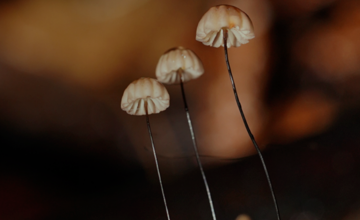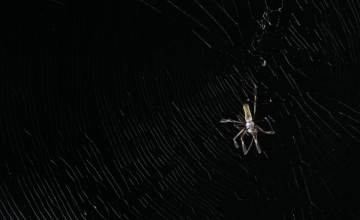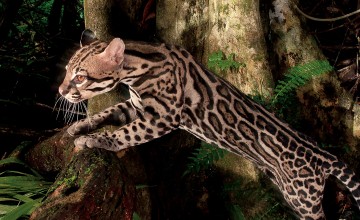
Sabrina
Amador
Ecological and social interactions affect the behavioral responses of organisms. Ant societies in obligate mutualisms with plants are a fascinating pairing for studying coevolution. The plant and the needs it creates on the ant society shapes the behavior and morphology of society members.
Projects and Stories
Research Focus
Research projects in our lab combine approaches from behavioral ecology, functional morphology, ethology and evolution of behavior. Our work focuses mostly on the ultimate and proximate causes of behavior in an ecological and social context, with an emphasis on how ecological or social interactions shape behavioral and morphological traits. We are inspired by field observations and combining theory and natural history to understand natural phenomena, and we welcome collaborators who study behavior in a broad range of tropical organisms.
Additional links
Contact
Research Overview
What is the role of ecological associations on behavioral and morphological trait evolution?
Obligatory associations between different organisms have consequences for the evolution of traits in the interacting species. We focus our research on the effects of obligatory plant parasitism or mutualisms on the behavior and morphology of acacia ants. Specifically, we study navigation, memory and learning in ants with different types of ecological associations. We are also interested in how the behaviors associated with the mutualistic or parasitic association may shape the morphology of ants.
How do individual decisions add up to achieve common goals in insect societies?
We study how insect societies work to achieve common goals without central control. Focusing on acacia ants, we addressed how workers that are similar in shape and morphology are able to cover the whole variety of tasks that must be performed in the colony. We assess how society shapes the behavior and brain of individual ants. We are interested in understanding how experiences can affect the specialization, performance and range of tasks that workers execute.
How do organism make decisions, and what is the role of memory and learning on decision-making?
We are broadly interested in how organisms modulate a response based on previous experiences, that is, how organism learn. Hence, we are researching plant decision making, aiming at understanding habituation-like responses in the sensitive plant Mimosa pudica. Also, we study memory, learning and orientation in ants.
Education
Ph.D. Ecology, Evolution and Behavior. University of Texas at Austin, 2014. Dissertation: Brain and behavioral traits of acacia ants.
M.Sc. in Biology with honors. Universidad de Costa Rica, 2009. Dissertation: Division of labor and pruning behavior of acacia ants
B.S. in Biology. Universidad de Costa Rica, 2005.
Selected Publications
Amador-Vargas S., Wcislo W.T. 2021. Nestmate interference in acacia ants vary with colony size and task-specialization. Animal Behavior 181: 151–163.
Gijsman, F., Gonzalez Y., Guevara M. & Amador-Vargas S. 2021. Short-term plasticity and variation in acacia ant-rewards under different conditions of ant occupancy and herbivory. The Science of Nature. 108(4):31. doi: 10.1007/s00114-021-01738-w.
Farji-Brener A.G.& Amador-Vargas, S. 2020. Plasticity in extended phenotypes: how the antlion Myrmeleon crudelis adjusts the pit traps depending on biotic and abiotic conditions. Israel Journal of Ecology and Evolution 66: 41–47.
Amador-Vargas, S., Dyer J., Arnold N., Cavanaugh L. & Sánchez E. 2019. Acacia trees with parasitic ants have fewer and less spacious spines than trees with mutualistic ants. Naturwissenschaften 107:3.
Amador-Vargas, S. & Mueller, U.G. 2017. Ability to reorient is weakly correlated with central-place versus non-central-place foraging in acacia ants. Behavioral Ecology and Sociobiology 71: 43.
Amador-Vargas, S., W. Gronenberg, W. Wcislo, U. G. Mueller. 2015. Specialization and group size: brain and behavioural correlates of colony size in ants lacking morphological castes. Proceedings of the Royal Society B. 282: 2014-2502.
Kardish, M.R., Mueller, U.G., Amador-Vargas, S., Dietrich, E.I., Ma, R., Barrett, B., Fang, C.-C., 2015. Blind trust in unblinded observation in Ecology, Evolution, and Behavior. Frontiers in Ecology and Evolution 3: 51.
Amador-Vargas, S., M. Dominguez, G. León, B. Maldonado, J. Murillo, and G. L. Vides. 2014. Leaf-folding response of a sensitive plant shows context-dependent behavioral plasticity. Plant Ecology 215: 1445–1454.
Amador-Vargas S. 2012c. Run, robber, run: parasitic acacia ants use speed and evasion to steal food from ant-defended trees. Physiological Entomology 37: 323-329.
Amador-Vargas S. 2012b. Behavioral responses of acacia ants correlate with age and location on the host plant. Insectes Sociaux. 59: 341- 350.
Amador-Vargas S. 2012a. Plant killing by acacia ants (Pseudomyrmex spinicola) increases the density of host species seedlings in the dry forest of Costa Rica. Psyche. Special Issue: Advances in Neotropical Myrmecology 2012: 1-6.


